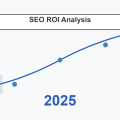It is an obvious fact that small businesses do not have the financial resources of large national and international companies and that means that their marketing budgets are going to be much smaller too. This might suggest that the chances of smaller businesses being able to compete on Google for search traffic are slim, but thanks to SEO, that is not the case.
The first fact we need to outline is that when it comes to Google’s ranking algorithms it does not know how big a company is, how much profit it makes or how big its marketing budget is. When crawling that company’s website and analysing everything else that contributes to ranking the currency isn’t cents and dollars, it is links and optimisation.
You could argue that because of their substantial budgets, large companies can afford to pay marketing teams or outsource to large agencies, and that is true. It is also the case that those resources will afford them the means to build up their backlinks, content and social media profiles quicker, and to a greater degree, than a small company that only operates in one city.
However, it is also the case that larger companies tend to veer their marketing budget more towards paid advertising than small companies do, meaning that they often ignore many of the actions and optimisation that could improve their organic rankings. This often mean a small company with a properly optimised website and an ever-increasing number of backlinks, can outrank bigger companies, especially when it comes to ranking locally.
A few years ago, Google started focusing more and more on the searches that people make when they are looking for a business that operates within their local area. They recognised that if someone typed in ‘tax accountant’ to the search box and then added the town or city that they lived in, it was unlikely they would be particularly interested in a national accounting firm with offices in multiple cities, but not that person’s home town or city suburb.
This led to Google changing some policies with respect to how they ranked local businesses when a geographic identifier was included in the search. They also introduced features such as the ‘map pack’ which often appears at the top of search results. This meant that when that a search for ‘tax accountant Joondalup’ was typed in, the results presented would show tax accounting firms who operate in Joondalup, and the map pack would show the top three ranked local websites.
For that same search a huge company that might have offices in all the major cities, including Perth, is not as likely to be ranked as highly, especially if the SEO that has been carried out for its website did not try to optimise any pages for the searches in the Joondalup area.
What that means for local businesses, instead of trying to rank for highly competitive search terms like ‘tax accountant’, and finding themselves in the obscurity of page 5 of the results, they can take a more effective route to rank highly on Google by focusing on local searches.
You may have already worked out that the number of people looking for a business and who then include a local town or area in their search is going to be a great deal smaller than those who just enter the business type. That is true, but this is a case of having a large slice of a small pie versus just a few crumbs from a big pie.
For example, with a broad term was to have 30,000 searches a month, if you were ranked anywhere lower than page 2 you would be lucky to have any visitors at all from it. Ask anyone you know how often they search on Google and click even as far as page 3. Not many do, and it is why, if you ask an SEO company – local SEO is far more effective.
If we use our tax accountant example in Joondalup, that search term may not get a huge number of searches, but if you have optimised your website for it, plus all the other local areas that you service, then it is your website that could be in the top positions on page one.
Bear in mind these three positions account for 60% of all the traffic that comes from a search, so ranking there can bring you a steady flow of potential customers, who no doubt you will convert into paying customers.









